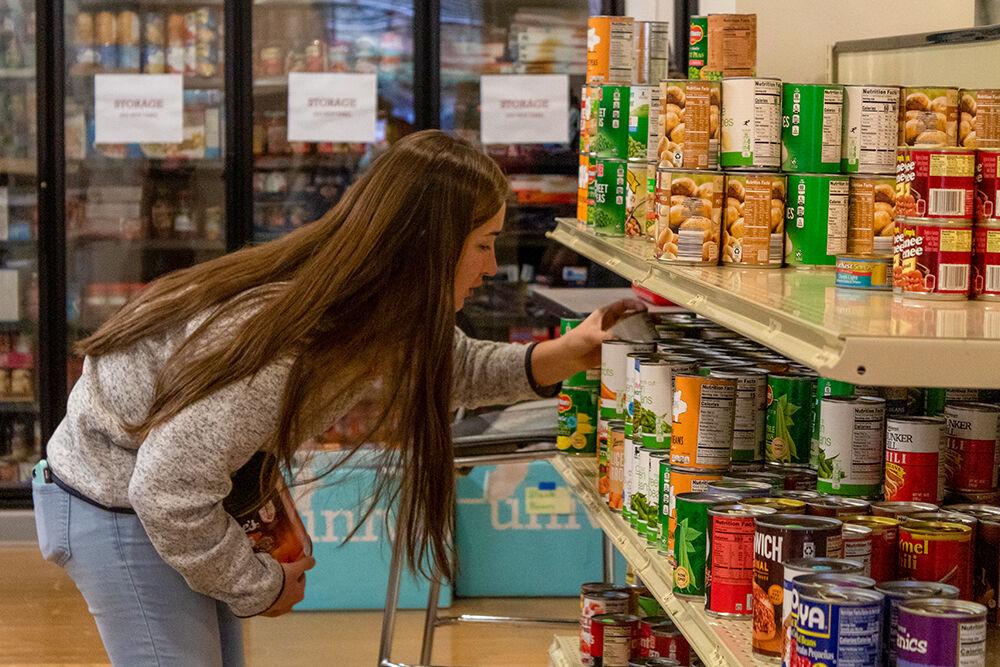NC State has partnered with local universities and the city of Raleigh in an initiative to address the basic needs of university students.
The Cities Addressing Basic Needs of Postsecondary Students initiative, sponsored by the National League of Cities (NLC), aims to support collaborative efforts to eliminate barriers that prevent students from completing postsecondary education and launching their careers.
According to Michael Bartlett, the program manager for the initiative, the partnership provides support for city and university leaders across the nation through monthly meetings with experts at the NLC and collaboration with other city teams.
Mary Haskett, a professor with a doctorate in psychology and co-chair of the Steering Committee on Student Food and Housing Security, said the partnership will provide an opportunity to generate systemic change.
“The ability for the University to partner with other colleges and universities in Wake County and the city of Raleigh opens up lots of possibilities for establishing some citywide policies and supports that will benefit our students,” Haskett said.
According to a February 2021 report co-authored by Haskett, there has been a considerable increase in food and housing insecurity at NC State in the past three years; since the pandemic began, 15% of students have experienced homelessness and close to 25% of students have experienced food insecurity in a 30-day period. Haskett said food and housing insecurity can have a significant impact on a student’s well-being.
“The stress of constantly worrying about where your next meal is coming from or how you’re going to pay rent that month really takes a toll on a student’s mental health, and it impacts their ability to do well in classes,” Haskett said.
Etienne Phillips, a first-year studying mathematics, said he experienced homelessness in March 2020 and left college for a year due to housing insecurity. Now, he finds it challenging to balance school and his social life while working to afford rent.
“I have this profound sense that I’m missing out on the college experience,” Phillips said.
Bartlett said students who lack access to basic needs are less likely to complete postsecondary education, which has an impact on city growth.
“Since the Great Recession, 95% of all jobs have gone to people with some postsecondary education,” Bartlett said. “If you want your city to be economically competitive in the future, you need highly skilled, highly trained workers, and that means workers with education and training beyond high school.”
Currently, the Pack Essentials program provides resources, such as the Feed the Pack Food Pantry, for students who don’t have access to basic needs. Haskett said she hopes to implement more preventative measures to address the root causes of food and housing insecurity.
“We have events across campus to bring canned goods for Feed the Pack and we get all excited about how many pounds of food are donated to Feed the Pack,” Haskett said. “Nevermind that we have lines of students down the sidewalk that need this food. Why don’t we find out why our students don’t have adequate food and housing?”
According to Haskett, the steering committee for housing and food instability has established a plan consisting of three short-term actions: a host home program in which community members provide temporary housing for students experiencing housing insecurity, formation of a student advisory committee to help determine long-term goals, and development of a website to help students locate basic needs resources in Wake County.
Haskett is currently searching for students to join the student advisory committee and encourages interested students to email her at mehaskett@ncsu.edu.
Bartlett said having student input can be extremely valuable for policy makers.
“I think the extent to which city leaders and colleges can listen to youth themselves is better for public policy because they have ideas that public policy leaders don’t a lot of times,” Bartlett said.













